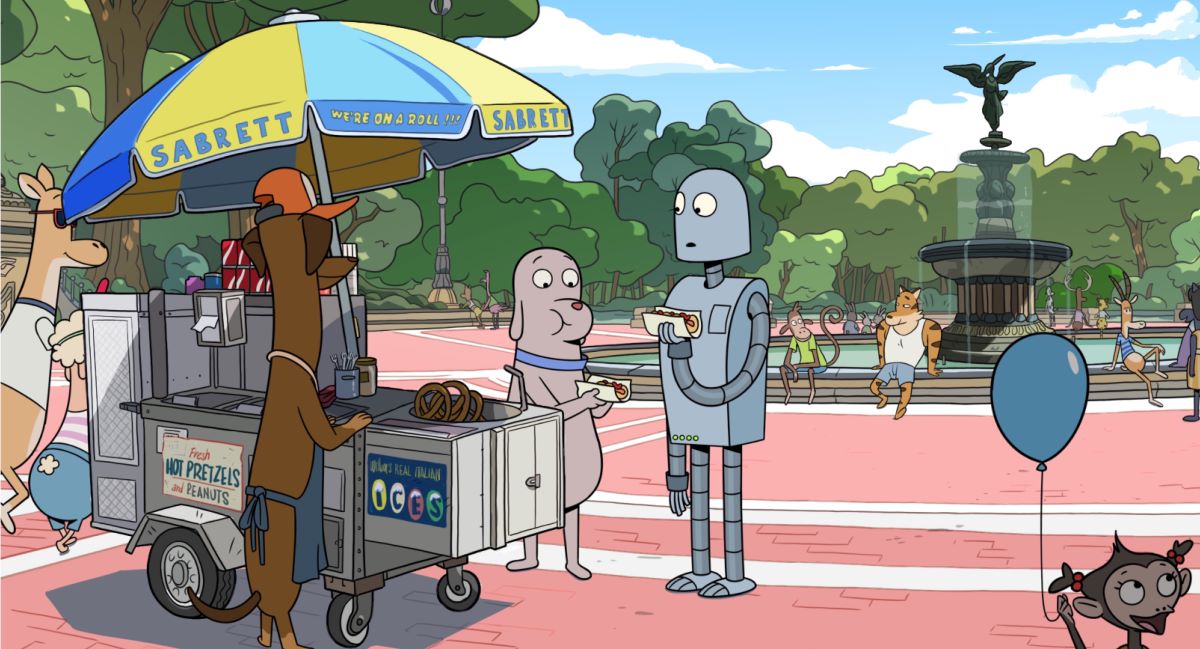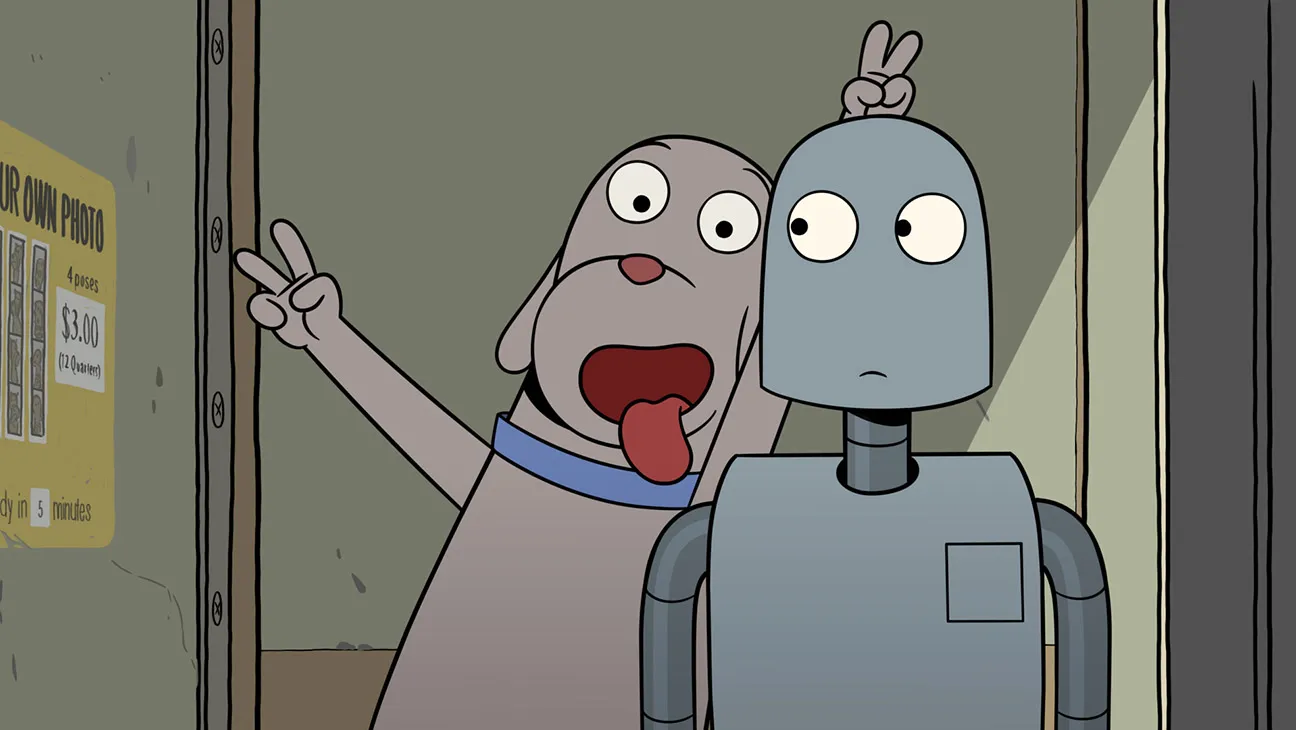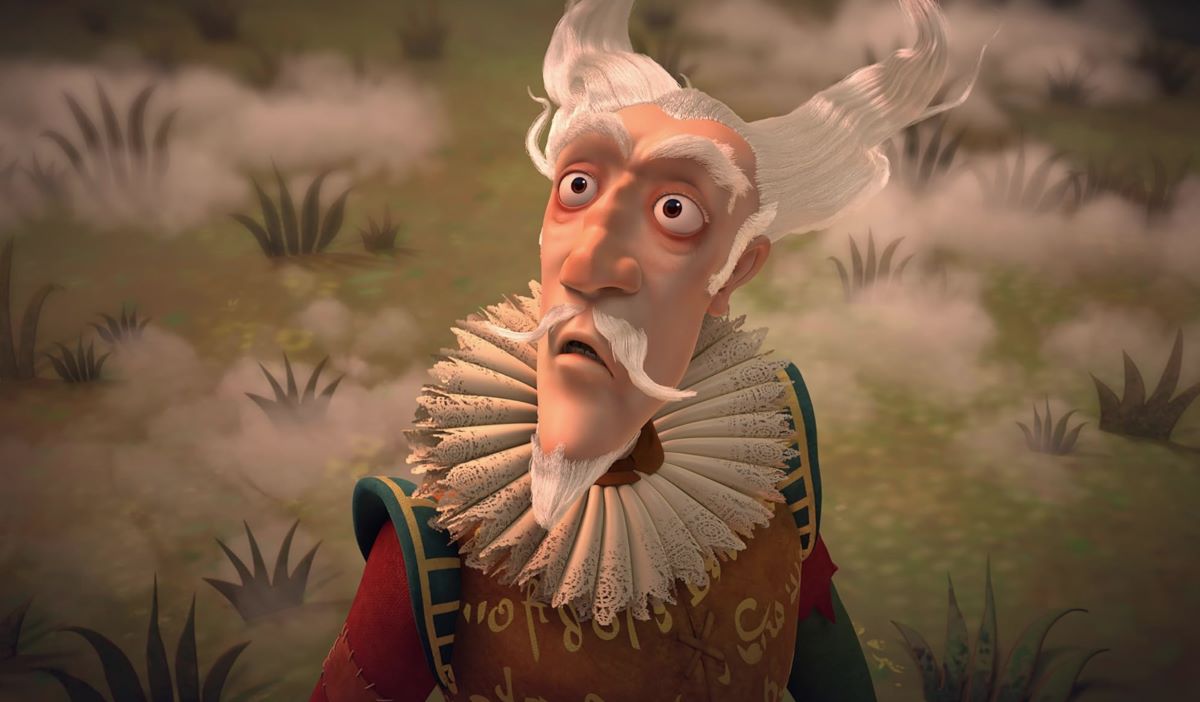Robot Dreams (2023)
Directed by Pablo Berger
DOG lives in Manhattan, and tired of always being alone, he builds a robot. Set to the tunes of Earth, Wind & Fire and the captivating New York music of the 1980s, their friendship blossoms and deepens. Then, one summer evening, DOG finds himself forced to leave ROBOT on the beach. Will the two friends manage to find each other again?
New York in the 1980s. The Twin Towers (time passing, time that has passed over us) still cast a shadow over an unrecognizable everyday. A dog is alone, or rather, feels alone. It desperately plays video games that seem out of time and out of place. The TV, its only companion, suggests a virtual friend through an advertisement: a robot to be assembled at home and then made affectionate. A game that soon turns into a reason for living. The dog accepts the robot, welcomes it into its home, gives it life, and makes it its companion.
In Robot Dreams, Pablo Berger chooses to address loneliness and melancholy by staging a world of silent yet expressive animals, as silent and expressive as we know—or must be—in everyday life: an emotional trap that powerfully brings back tears and feelings, a representation of a world devoid of humans that cuts extremes to push boundaries. Robot Dreams explores a sentient microcosm lacking everything except a hint of life. Its handling is lascivious, filled with intentional cinematic references—primarily The Wizard of Oz, but other soulful places are ostentatiously questioned, elaborated, and then digested, without reverential fear—and time expands to make the dog protagonist a clear reflection of us: a character forced to extend time to materialize its pain. Berger chooses a difficult but certainly effective path. In characterizing this almost soulless animal world, he opts for silence; a staging without commentary. Zootopia, but with muted voices. Robot Dreams takes the most complex, challenging route: it aims to depict a mourning without resorting to words, to remain in a paradoxically unsafe limbo, to dissect feelings with a language that is never verbal. The choice of silence, in its own way obvious and superficial, but progressively sensible and substantial, lends the story an epic suspension, determines the angle, and defines the engagement rules.

There is a dog that falls in love—without excessive queer deviations—with its robot friend. There is a robot that needs to be saved. There are those who transform and those who survive. None of us, first and foremost, have the free choice to establish a definition, to structure a role. In Robot Dreams, with the delicacy of an animation always gently serving the story, a sort of fierce auto-da-fé is constructed: happiness is built only by knowing how to let go of certainties and conquests. In this absurd world of animals and machines, the only hope for salvation is to step out of one’s comfort zone, to surrender to the unconscious: to let oneself be lulled by fate so that fate can finally define us.
Berger opts for a simple, almost accommodating representation: a two-dimensional animation that soothes while the film probes. A stripped-down management for a much more complex conceptual cluster. Certainly: the vintage gaze, the setting in a New York more cinematic than real (film citations matter, from Manhattan downward), the attention to the emotional nuances of characters revealed more by the construction of an imagery still to be verified than by a concluded cinematic awareness. Yet Robot Dreams manages to construct—hypothesize—its own personal and unexpected imagery. It speaks universally excluding any verbal form, suggesting without formulating. Ultimately, it stimulates our senses in a forcefully atypical manner. And on this, it constructs a world, a fractal of life. The dog and the machine manage to speak to us, even telling us that to be happy, we must let go of our certainties: a life lesson absorbed by those who should not be giving it, by those we perceive as a relative presence. In the end, Robot Dreams works on this belief: that our perception of the world, however solid, will always have to contend with its mortality, with its intrinsic unhappiness. Only by absorbing that pain will we be capable, incomplete but finally realized, of facing that terrifying specter that is our future.
Federico Pedroni
Cineforum, April 13, 2024





